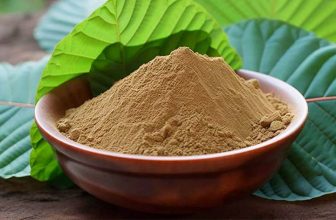
Generally when discussing the benefits of optimum nutrition; improvements to cardiovascular health, sports performance or inches off the waistline are often highlighted. However, did you ever think how adopting these changes can also improve the health of your feet? Well read on for our 5 Top Foods To Ensure Healthy Feet!
First of all, let’s consider the scientific effects of poor nutrition on foot health:
Diabetes – The damaging effect of raised blood sugars can cause foot ulcerations (according to the Journal of Foot and Ankle Research) these are reported as the leading cause of hospital admissions in individuals with diabetes, and can trigger a host of diabetic issues causing loss of sensation and circulation.
Inflammation – A diet high in processed or refined sugars activate the release of inflammatory messengers called cytokines says The American Journal of Clinical Nutrition. Several studies have also shown that both trans and saturated fats trigger adipose (fat tissue) inflammation, which can also worsen arthritis inflammation, an indicator of potential heart disease.
Obesity – According to the American Orthopaedic Foot and Ankle Society, an increased BMI (body mass index) is often associated with foot pain and disability. This is supported by the Arthritis Care and Research journal and many more showing a strong negative relationship between obesity and foot health.
Bone health – Interlinked with obesity, studies have shown increased prevalence of tendinitis, plantar fasciitis, osteoarthritis (chronic pain conditions of the foot) and gout in obese people. A poor diet that is low in micronutrients can also lead to the onset of osteoporosis, a disease of progressive bone loss which is associated with an increased risk of fractures and trauma-related breaks.
Poor circulation – Circulatory problems such as atherosclerosis can be caused by peripheral artery disease (PAD), obesity, smoking, diabetes, and other conditions can create various problems with your feet and legs.
As you can see there are many nutrition based conditions which affect your foot health so now let’s continue on to 5 top foods that have been shown to complement as well as enhance foot health.
1. Omega-3 Fatty Acid Rich Foods
Oily fish such as pilchards, mackerel, salmon and sardines are good sources of vitamin D (increase absorption of calcium and fortified dairy products are an excellent source of vitamin D) and omega-3s which can improve skin elasticity, cardiovascular health and cholesterol triglyceride levels and decrease the risk of type two diabetes.
A 2015 study in the Journal of Vascular Surgery recommends consuming omega-3s as a way to lower the risk of peripheral artery disease. Reduction of inflammation is another great benefit and nutritional studies suggest they should be properly balanced in the diet with omega-6s. For vegetarians and vegans who generally have low omega-3 intakes and blood levels, examples such as rapeseed oil, soya, flax, linseed oils, walnuts and even butters (avocado and plant based) are great sources.
As a rule, eat less saturated and trans fats and consider replacing them with healthier unsaturated and omega-3 fats. WHO (World Health Organization) states when consuming dietary fats, restrict these to between 15-30% of your overall calorie intake.
2. Whole grains
Many whole grains are great sources of dietary fibre which can not only help you feel satiated but also contribute to help reduce blood cholesterol levels, lower the risk of type 2 diabetes, heart disease and manage a healthy weight, reducing the likelihood of obesity. Examples include whole wheat, oats/oatmeal, rye, barley, brown rice, wild rice, buckwheat, triticale, bulgur (cracked wheat), millet, quinoa, and sorghum.
The process of refined grains removes some important nutrients, including B-vitamins, magnesium (mild magnesium deficiency is reported to be a leading risk factor for osteoporosis), iron and dietary fibre. Some examples of refined grains are wheat flour, enriched bread and white rice.
3. Fruits
Fruits contain fibre as well as anthocyanin, a member of the flavonoid family and has been shown to slow down sugar absorption and decrease the risk of diabetes, cardiovascular disease and cancer. The high vitamin C content helps with collagen production that makes up your tendons and ligaments. A variety of berries also contain antioxidants which have important disease-fighting compounds as well as anti-inflammatory properties. Other micronutrients such as vitamin K, manganese and copper are also important in bone health.
Try to limit refined grain foods, sweetened fruit juices and sugary foods, as they are both bad for your blood sugar as well as for your teeth. Try 250-300ml of 100% fresh fruit juice or smoothie combinations per day. Raw is more!
4. Beans and greens
Both leafy green vegetables and beans contain antioxidants, complex carbohydrates, fibre and iron making this an exceptional choice for preventing diabetes, obesity, weight management and high cholesterol.
Vegetables such as kale, broccoli, brussels sprouts, mustard greens and turnip greens allow good calcium absorption, ranging between 40-64% (which is fantastic for vegans and vegetarians). They also contain a variety of other micronutrients your bones need, such as vitamin C, manganese, copper, vitamin A, vitamin B6, Iron and vitamin K.
5. Dairy products and Vitamin D
These two will help you build stronger bones to combat the onset of osteoporosis, fractures and other structural deformities. Dairy products, including yogurt and cheese are excellent sources of calcium. An eight-ounce glass of milk contains about 300mg of calcium. Other calcium-rich foods include sardines with bones and green leafy vegetables, including broccoli and collard greens. They also contain vitamin K, which in conjunction with vitamin D, plays a significant role in bone metabolism and regulation of osteoclast production, providing potential protection against osteoporosis.
For vegetarians, vegans and individuals with lactose intolerance (and symptoms stemming from lactose malabsorption) many non-dairy milks such as soya, coconut, almond, oat and rice etc. are now fortified with calcium, vitamin D, and or vitamin B12.
So there you have it, a brief overview of some easy to identify causes of poor feet health and not only how to prevent possible issues in the future, but how you can proactively enhance your feet’s health by proper diet and the intake of vital nutrients.
In our next articles, we’ll also be looking at the role foot care exercises and massage can have on everyday activities, sports performance, overall wellness, and much more. Stay tuned!









